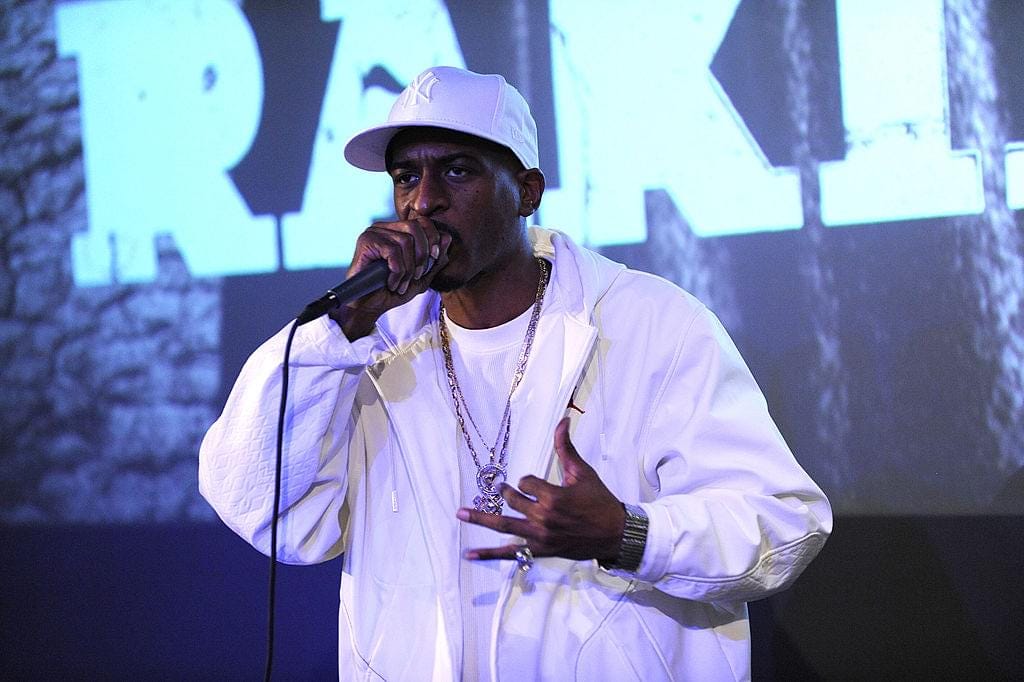Rakim: The MC Who Redefined Rap’s Flow
Rakim, often called The God MC, revolutionized rap with his complex, multi-syllabic rhyming, transforming the genre from its sing-song roots to a more intricate and poetic form.
The Birth of a New Flow Rakim is frequently hailed as the greatest rapper of all time, largely due to his revolutionary impact on lyrical techniques. Before Rakim, known as The God MC, entered the scene, rap was characterized by a sing-song, elementary cadence. The Long Island-born MC transformed the genre by introducing a complex, multi-syllabic rhyming structure that was both intricate and poetic.
Jazz Influence and Rhyming Technique Rakim redefined rap “flow” with intricate rhyme schemes, often compared to jazz saxophone improvisation. He attributed his unique style to his background in playing the saxophone and his deep appreciation for jazz.
"I haven't played [the saxophone] in a few years, but I think it heavily influenced my rhyme flow," Rakim told Halftime Online. "Playing the sax and loving jazz music taught me to find words within the beat. The syncopation and pauses came from my musical background, listening to John Coltrane, Thelonious Monk, and their innovative work. I tried to incorporate that into my rhymes, and it played a significant role in my flow."
Legacy and Influence Rakim’s debut modernized rap, rendering previous approaches to wordplay simplistic and outdated.
"I would say Rakim is the most studied MC ever," Kool Moe Dee noted in The Concise Guide to Hip Hop. "Any MC who emerged after 1986 had to study Rakim to understand what was possible. Just as Michael Jordan is the basketball player's basketball player, Rakim is the MC’s MC."
Grandmaster Flash echoed this sentiment, praising Rakim’s transformative impact on rhyming: "Rakim brought new thought and technique to the game. It was as if he single-handedly reinvented the art of being an MC, much like I had done for DJing. He saw the limits of what existed and pushed beyond them."
Unlike many of his predecessors, Rakim rhymed multiple times within a single bar, rather than relying on a single end rhyme.
Nas, reflecting on Rakim’s influence, shared his initial reaction upon hearing him rap: "I never heard a flow like his. There were plenty of guys rapping, many shouting into the mic, so when Rakim came with the opposite approach, it made everyone freeze. He was like an instrument within the music, and what he was saying had never been done before," he told MTV News during a joint interview with Rakim.
The Eric B. Partnership and Its End During the late '80s and early '90s, Rakim and his long-time musical partner Eric B. achieved success with albums like Paid in Full (1987), Follow the Leader (1988), Let the Rhythm Hit 'Em (1990), and Don't Sweat the Technique (1992).
"Everything was organic for me and Eric B.," Rakim said on What's Good. "I was 17...so young, it took time to figure out how I wanted to approach hip-hop and let people know my style."
Despite their legendary run, the partnership dissolved in 1992 due to a business disagreement.
"I won't beat around the bush; it would sound stupid. We had three more albums left on our contract, and Eric B. came up with an idea: he would do a solo project, I would do a solo project, then we’d come back together for the last album. That way, our contracts would end, and we could negotiate new ones. He'd take the money for his solo project, I'd take mine, then we’d do a new album with a new deal. But when it was my turn, he didn't want to sign off. That caused a lot of problems."
He continued, "That disagreement led to the breakup of Eric B. and Rakim. It left a bitter taste in my mouth for a long time, but I eventually matured and realized it was bigger than us."
Solo Career and Signing to Dr. Dre’s Aftermath Label After parting ways with Eric B., Rakim released two solo albums: The 18th Letter/The Book of Life in 1997 and The Master in 1999.
In October 2000, the rap world was shocked when Dr. Dre announced that Rakim had signed with his Aftermath label during the filming of Eminem’s "Stan" video.
"We just signed Rakim to our label," Dre declared. "Rakim is on Aftermath, and his album is going to be Oh My God. This is going to be the biggest hip-hop record ever."
The album was also set to feature production from DJ Premier and Dre’s protégé, Mel Man. However, after moving to California, Rakim and Dr. Dre encountered creative differences that stalled the project.
"I guess Dre wanted me to make a gangsta rap album," Rakim shared in an interview with Vlad TV. "But I felt like I was maturing and wanted to elevate my music. I envisioned a mega project that everyone could enjoy, but we couldn’t agree on a direction."
Ultimately, the two "mutually decided to go their separate ways" in 2003 due to "creative differences."
Rakim’s Triumphant Return In 2024, after a 15-year hiatus, Rakim made a highly anticipated return to hip-hop with the collaborative track "Be Ill," featuring Kurupt and Masta Killa, from his then-upcoming album G.O.D.’s Network (Reb7rth).
A special edition of the album was released as a six-inch vinyl with "REB7RTH" on the A side and "Love is the Message" on the B side. Limited to 500 copies, the album featured an all-star lineup, including Masta Killa, Kurupt, Nipsey Hussle, Snoop Dogg, and Planet Asia.



